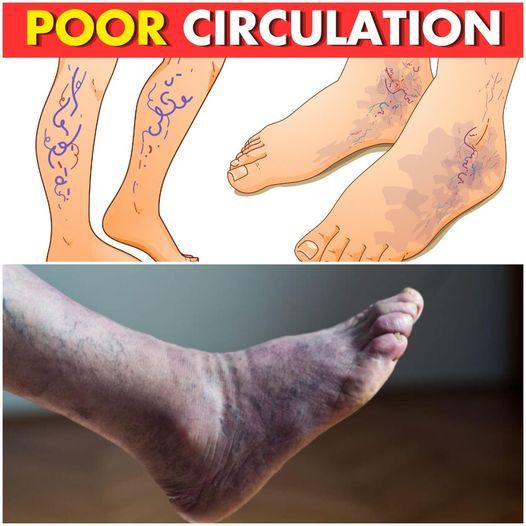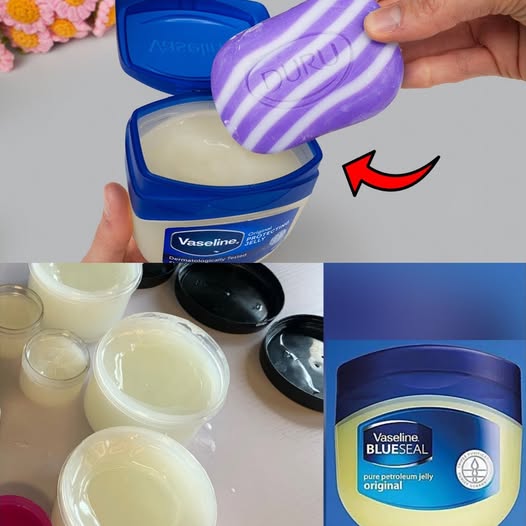Introduction

Poor circulation is a silent but serious health issue that can impact your daily life and lead to severe complications if left unchecked. Many people dismiss early warning signs, only to face long-term consequences. Recognizing these symptoms early and taking proactive steps can significantly improve your overall well-being.
In this article, we’ll explore five alarming signs of poor circulation, answer common questions, and provide actionable solutions to improve blood flow. If you’ve ever experienced numbness, cold extremities, or constant fatigue, keep reading—you might be at risk.
5 Warning Signs of Poor Circulation
1. Cold Hands and Feet
Do your hands and feet always feel icy, even when the room temperature is normal? Cold extremities often indicate poor blood flow. Your body prioritizes blood supply to vital organs, leaving your fingers and toes deprived of warmth.
What Causes It?
- Peripheral artery disease (PAD)
- Diabetes
- Raynaud’s disease
- Sedentary lifestyle
How to Fix It:
- Exercise regularly to stimulate circulation
- Use warm compresses
- Stay hydrated to keep blood consistency optimal
- Avoid smoking and excessive caffeine intake
2. Numbness or Tingling Sensation
A frequent tingling or “pins and needles” sensation in your limbs may be more than just an uncomfortable annoyance—it could be a sign of restricted blood flow.
What Causes It?
- Sitting in one position for too long
- Nerve compression
- Diabetes-induced neuropathy
- Blood clots
How to Fix It:
- Adjust your posture frequently
- Stretch and move every 30-60 minutes
- Incorporate foods rich in vitamin B12 and iron
- Consult a doctor if numbness is persistent
3. Swelling in Lower Extremities
Do your ankles and feet swell often, especially after a long day? Poor circulation can cause fluid to pool in your lower body, leading to edema.
What Causes It?
- Venous insufficiency
- Heart failure
- Kidney disease
- High sodium diet
How to Fix It:
- Elevate your legs above heart level for 15 minutes daily
- Reduce sodium intake
- Wear compression socks
- Stay active and avoid prolonged sitting or standing
4. Slow Wound Healing
Have you noticed that minor cuts and bruises take longer than usual to heal? Poor circulation limits the oxygen and nutrients needed for cellular repair, delaying wound recovery.
What Causes It?
- Diabetes
- Poor diet
- Vascular diseases
- Smoking
How to Fix It:
- Increase protein intake for tissue repair
- Keep the affected area clean and moisturized
- Avoid processed foods that hinder circulation
- Check for underlying conditions like diabetes
5. Persistent Fatigue and Brain Fog
If you constantly feel tired and have trouble concentrating, poor blood circulation might be to blame. Your brain needs a steady supply of oxygen and nutrients to function optimally.
What Causes It?
- Anemia
- Dehydration
- Low blood pressure
- Sleep apnea
How to Fix It:
- Stay hydrated throughout the day
- Improve sleep quality with a consistent routine
- Consume iron-rich foods like spinach and lean meats
- Engage in daily physical activity to boost oxygen levels
Frequently Asked Questions About Poor Circulation
Q1: How can I test my circulation at home?
A simple way to check circulation is the capillary refill test. Press your fingernail until it turns white, then release it. If color returns in less than 2 seconds, circulation is normal.
Q2: Can stress contribute to poor circulation?
Yes, chronic stress leads to vasoconstriction (narrowing of blood vessels), reducing circulation and increasing blood pressure.
Q3: What are the best exercises to improve circulation?
Walking, swimming, yoga, and resistance training are excellent for boosting circulation.
Q4: Does drinking water help circulation?
Absolutely! Staying hydrated ensures blood remains fluid and circulates efficiently.
Q5: When should I see a doctor for poor circulation?
If you experience persistent numbness, swelling, or non-healing wounds, consult a healthcare professional immediately.
How to Improve Circulation Naturally
1. Stay Active
Engage in at least 30 minutes of moderate exercise daily. Movement prevents blood from pooling and strengthens veins and arteries.
2. Optimize Your Diet
Consume foods that promote circulation, such as:
- Fatty fish (rich in omega-3s)
- Citrus fruits (high in vitamin C)
- Leafy greens (boost nitric oxide levels)
3. Manage Stress
Practice meditation, deep breathing, or mindfulness to lower stress levels and keep your blood vessels relaxed.
4. Improve Posture
Avoid crossing your legs for extended periods and ensure ergonomic seating to prevent restricted blood flow.
5. Try Herbal Remedies
Ginger, ginkgo biloba, and cayenne pepper are known to stimulate circulation.
Conclusion
Ignoring the warning signs of poor circulation can lead to severe health issues, but the good news is that you can take proactive measures to enhance your blood flow. By making small lifestyle adjustments such as staying active, eating the right foods, and managing stress, you can significantly improve circulation and overall well-being. Don’t wait for symptoms to worsen—take action today!


